Email: info@promesse.uk
Phone: +44 7710 621141
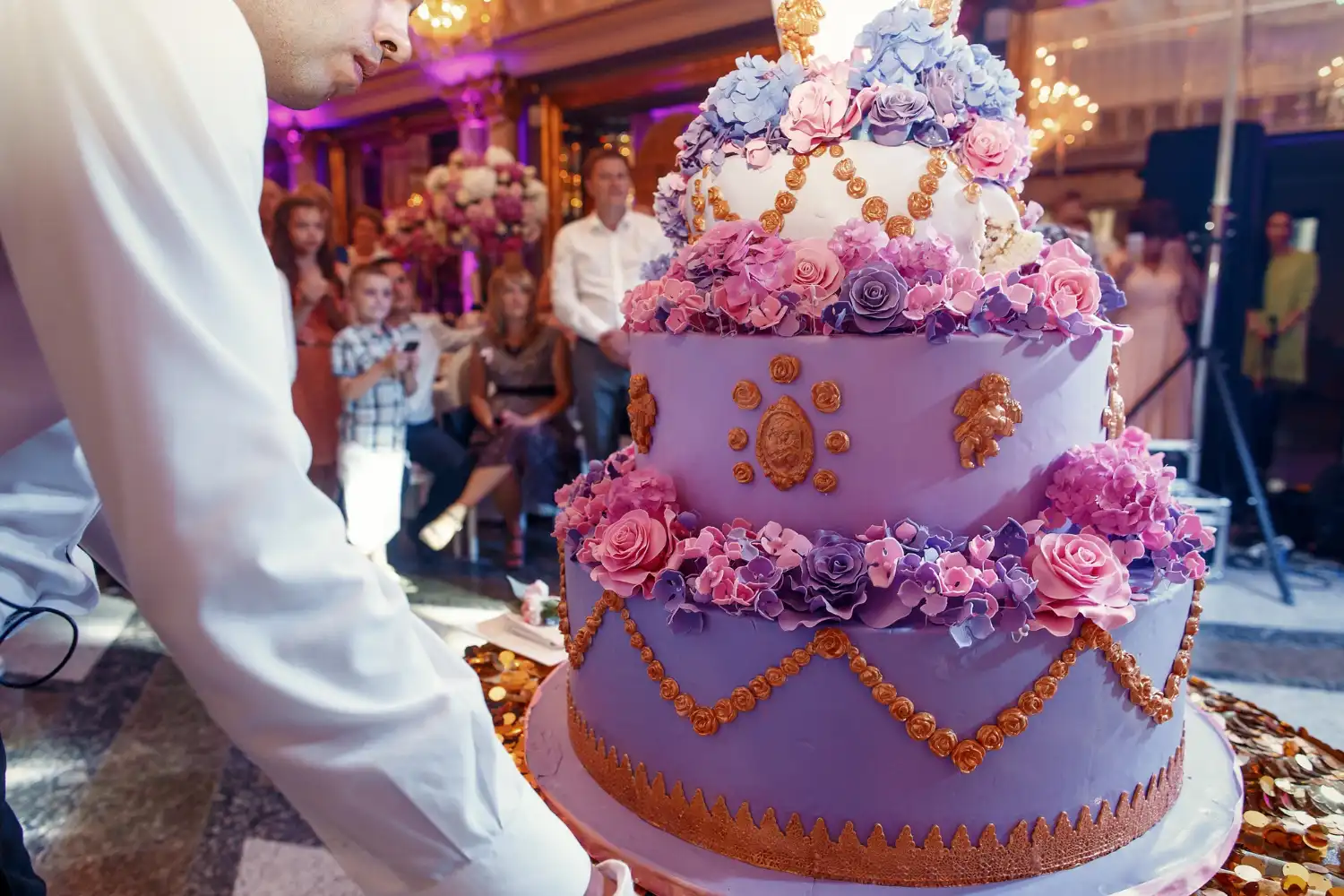
Discover the average wedding cake cost in the UK, factors that affect pricing, regional differences, money-saving tips, and 2025 wedding cake trends.
Wedding cake cost can feel complicated—it’s more than dessert; it’s a centerpiece, a photo opportunity, and a taste of your celebration. Wedding cake cost can be all over the place, and it’s easy to overspend before you know it.
This guide will help you understand what drives the price of a wedding cake and how to get the beautiful dessert you want without breaking the bank. Let’s dive in!
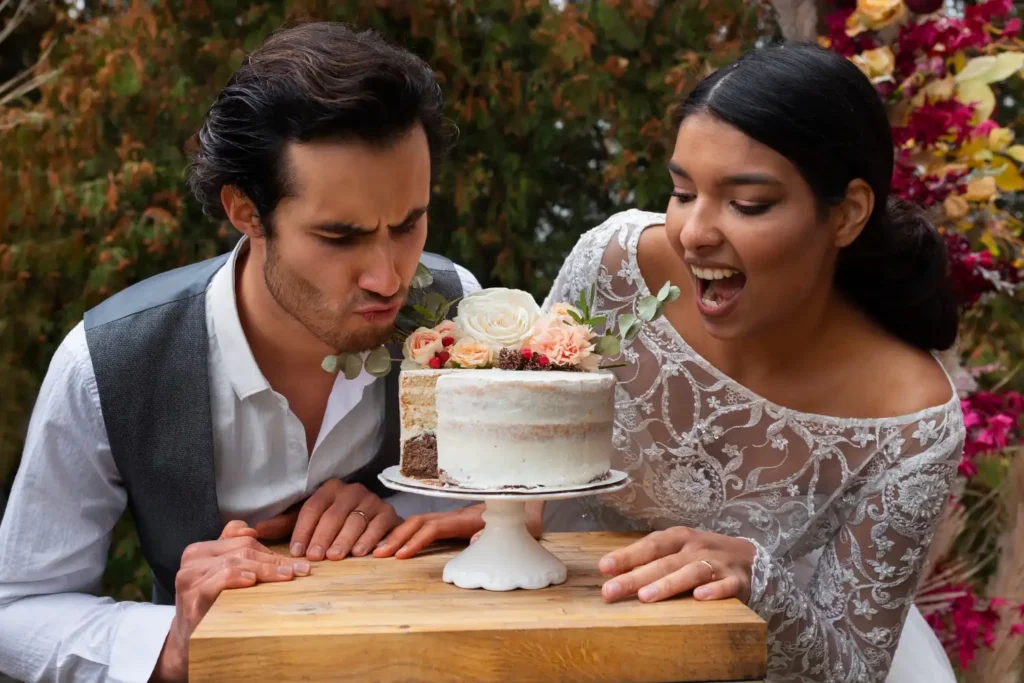
The average wedding cake cost in the UK is between £300 and £500, but most couples spend around £400 13. However, prices can be as low as £200 for a simple two-tier cake or over £1,000 for a luxury bespoke design 18. In London, prices are higher, with three-tier cakes starting from £780.
Why such a big range? It all depends on:
Most bakeries charge per slice, usually between £3 and £15 per serving. For example, a cake for 100 guests could cost £300 to £1,500, plus extra fees for delivery, setup, or special decorations.
Where you live plays a big role in pricing. Bakeries in big cities like London often charge more because of higher rent and labour costs. Here’s a quick look at average costs in different UK regions:
| Region | Average Cost for a 3-Tier Cake |
| London | £780+ |
| Rural Areas | £300–£400 |
| Other Cities | £400–£600 |
Getting married in a smaller town or rural area could save you money.
The number of tiers and overall size of your cake directly impact the cost. More tiers mean more baking, stacking, and decorating work. Here’s a rough estimate for UK couples:
If you have a large guest list but want to save money, consider ordering a smaller display cake for photos and cutting, and serving guests from sheet cakes kept in the kitchen. This can reduce costs significantly.
The fancier the design, the higher the cost. Simple buttercream cakes are more affordable, while fondant icing—which gives a smooth, polished look—costs more because it’s harder to work with. Other expensive decorations include:
To save money, choose fresh flowers instead of sugar ones, or opt for a minimalist design with elegant buttercream textures.
Basic flavors like vanilla, chocolate, or lemon tend to be the cheapest. Premium flavors – such as carrot cake, pistachio cake, or fruit cake soaked with alcohol – which aren’t typically sold in stores, hike the overall cost. Dietary-specific cakes (gluten-free and/or vegan) can increase pricing because they have special ingredients, and care is needed not to cross-contaminate the ingredients.
Established bakers with a successful reputation will often charge more because of their expertise, creativity, and reputation. Although it can be tempting to choose a lesser-known and cheaper baker, stay focused on the fact that your cake will be front and center at your reception. A reasonable investment in a talented baker could make certain that your cake looks great and tastes delicious.
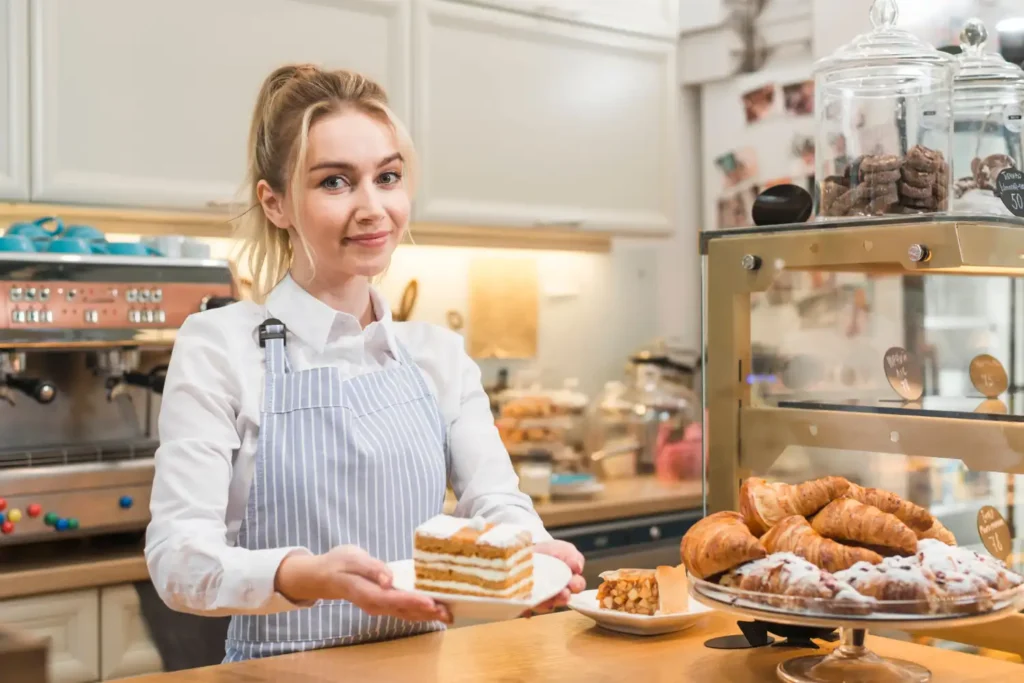
Several couples overlook delivery and setup fees, which can add £20 to £200+ to your final total. Delivery especially matters when ordering a multi-tier cake, as multi-tier cakes require careful transportation and assembly.
Buttercream is less expensive and much better tasting than fondant. A skilled baker can make impressive textures, ruffles, or even sharp edges with buttercream.
Instead of expensive sugar flowers, decorate with fresh flowers (check with your florist!) or seasonal fruits. This adds a natural, elegant touch without the high cost.
Have a small, gorgeous cake for photos and cutting, and serve guests from sheet cakes of the same flavour. This can cut costs without anyone noticing.
Classic flavours are cheaper than exotic ones. If you want variety, consider having two flavours instead of four or five.
If you’re offering other desserts, you don’t need a huge cake. Most bakers recommend ordering enough cake for 75–80% of your guests.
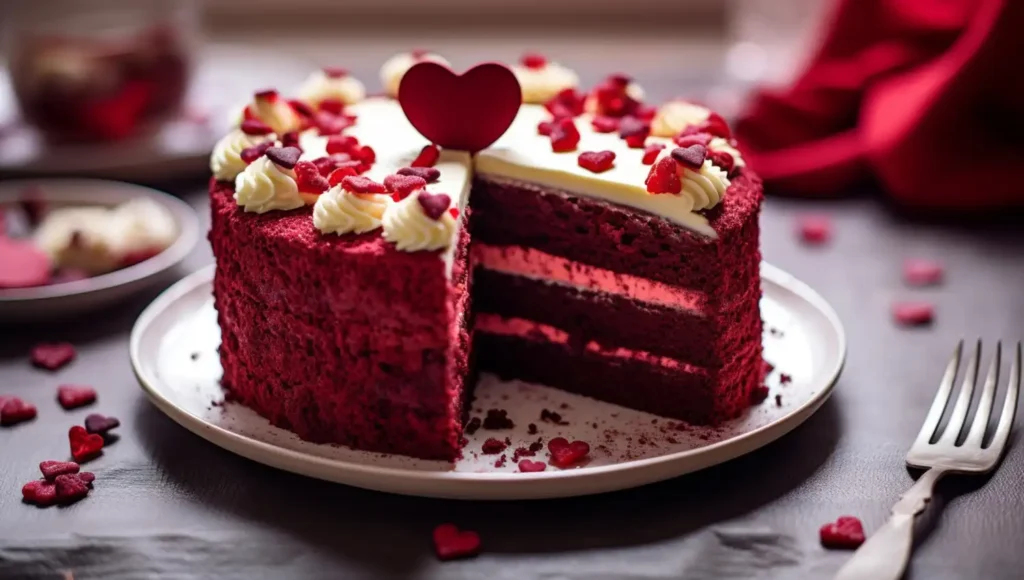
Some couples think dummy tiers (fake tiers made of foam) will save money, but they often don’t—the decoration costs the same as a real cake! Plus, they’re bad for the environment.
More couples are moving away from traditional white cakes and choosing bold colours like jewel tones or pastels to match their wedding theme.
Large sugar or fresh florals—like peonies, dahlias, or roses—are now trending. They create an impactful, romantic look.
Couples also want cakes made with local and seasonal ingredients to support small businesses and reduce their carbon footprint.
Simple, elegant cakes with clean lines are trending. They look modern and sophisticated without being overly expensive.
For couples who want something unique, novelty cakes shaped like books, mountains, or other personal items are a fun option. These can be pricey but are unforgettable.
It’s best to book 3–6 months before your wedding, especially if you’re getting married during peak season (spring or summer).
No! If you’re offering other desserts, order enough cake for 75–80% of guests. Some people won’t eat cake, and others will be too full.
Absolutely! Many couples now serve dessert alternatives like cupcake towers, donut walls, pie bars, or ice cream stations.
Many bakers offer gluten-free, vegan, or nut-free options. Just be aware that these may cost extra due to special ingredients and preparation.
Some bakeries offer free tastings, while others charge a fee. Always ask beforehand.
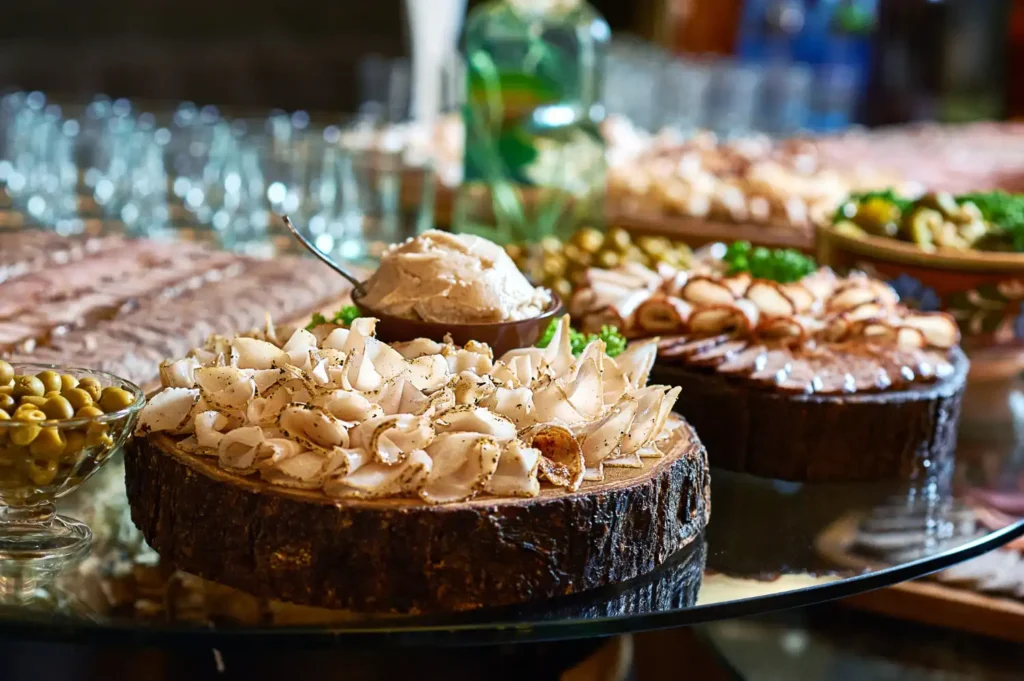
Your wedding cake should be a celebratory addition, not a budget buster! If you understand what goes into the wedding cake cost, you can plan wisely and still have a beautiful cake. Keep in mind:
Now that you have all of this info at your disposal, let the taste testing and cake design begin!
What’s your dream wedding cake? Share your ideas in the comments below!
Join our weekly newsletter and get the latest wedding trends, expert planning tips, and elegant inspiration delivered straight to your inbox.
No spam, no fluff - just beautifully curated content for modern couples.